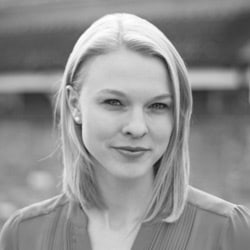 Having come from a background in social science, I am naturally fascinated by the complex factors that influence human behaviour. Discrepancies often exist between what a group of people might say or believe should happen, and the reality of what takes place in a given situation. The reasons underlying these discrepancies have been the subject of much academic research.
Having come from a background in social science, I am naturally fascinated by the complex factors that influence human behaviour. Discrepancies often exist between what a group of people might say or believe should happen, and the reality of what takes place in a given situation. The reasons underlying these discrepancies have been the subject of much academic research.
Lucid’s approach to medical education employs the outcomes of such research in an innovative, evidence-based framework called Advanced Outcomes (AO), designed to drive measureable change in HCP behaviour and improve outcomes for their patients.
The methodology is grounded in psychology literature, which tells us that there are 14 barriers that influence the adoption of a new behaviour. Too often, medical education focuses on just two of these – knowledge and skills. By applying the AO methodology, all stakeholders (including HCPs, our pharma partners and payers) uncover a deeper understanding of all the factors preventing the adoption of clinical best practice, facilitating the development of education that directly addresses these factors.
Lucid’s AO framework has enabled me to translate my academic interests into a passion for developing medical education programmes that truly change behaviour and improve patient outcomes.
There are 14 barriers that influence the adoption of a new behaviour
I have spent the last 18 months working on an educational programme for specialist nurses in the UK. Our Barrier Identification Survey revealed that shortcomings in confidence, communication skills to assess patients’ individual treatment goals and service infrastructure presented greater barriers to advancing outcomes for patients than knowledge of the available treatment options per se. This understanding enabled us to develop a modular educational programme to support nurses in these areas. At the end of the first meeting, 98% of participants reported feeling more confident in conducting patient-centred consultations.
The success of this programme cannot simply be attributed to the implementation of AO. Working in close partnership with the clinical community was critical to ensure the relevance of the programme. We worked with a group of nurse leaders who made it clear that improving nurses’ confidence and capacity to elicit individual patient treatment goals required more than communication skills training – they needed tools to optimise time-limited consultations, strategies to overcome patient resistance to discussing sensitive issues, and techniques to conduct consultations over the phone and via video messaging.
This experience has demonstrated to me that we can create industry-leading programmes with ambition and in partnership with the clinical community, which provide the tools to drive meaningful change in behaviour to improve the lives of patients.




